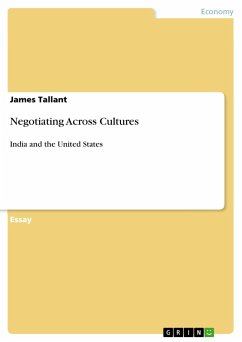Essay from the year 2014 in the subject Business economics - Business Management, Corporate Governance, grade: 1,3, University of Strathclyde, language: English, abstract: Mahatma Gandhi, the famous Indian fighter for freedom, once stated: "A nation's culture resides in the hearts and in the soul of its people". Of greater importance, however, than analysing where in the human body culture is located, is the question whether such a concept as national culture does exist at all. According to McSweeney (2002, Abstract), most of the literature within each management discipline implies that actually "each nation has a distinctive, influential and describable 'culture'". Although it can therefore be assumed that different cultures exist, there is no universal and objective description of any one culture on its own (Mead, 2005). Any one culture can only be described in relation to another culture; this is precisely where a few famous approaches to the whole subject of different cultures and their classification and comparison come in. The models' differences as well as their complementariness will be the focus of the first part of this paper. The conceptual notions that will be discussed and compared along the dimensions of their research method and their primary focus are those of Edward T. Hall (1976), Geert Hofstede (1980), and Fons Trompenaars and Charles Hampden-Turner (1998). Furthermore, in the second part of this paper, the specific interrelationship between culture and today's business world, as well as the management practices within it, is described and analysed by focusing on Culture and Organisation on the one hand, and on Culture and Communication on the other hand.
Hinweis: Dieser Artikel kann nur an eine deutsche Lieferadresse ausgeliefert werden.
Hinweis: Dieser Artikel kann nur an eine deutsche Lieferadresse ausgeliefert werden.








